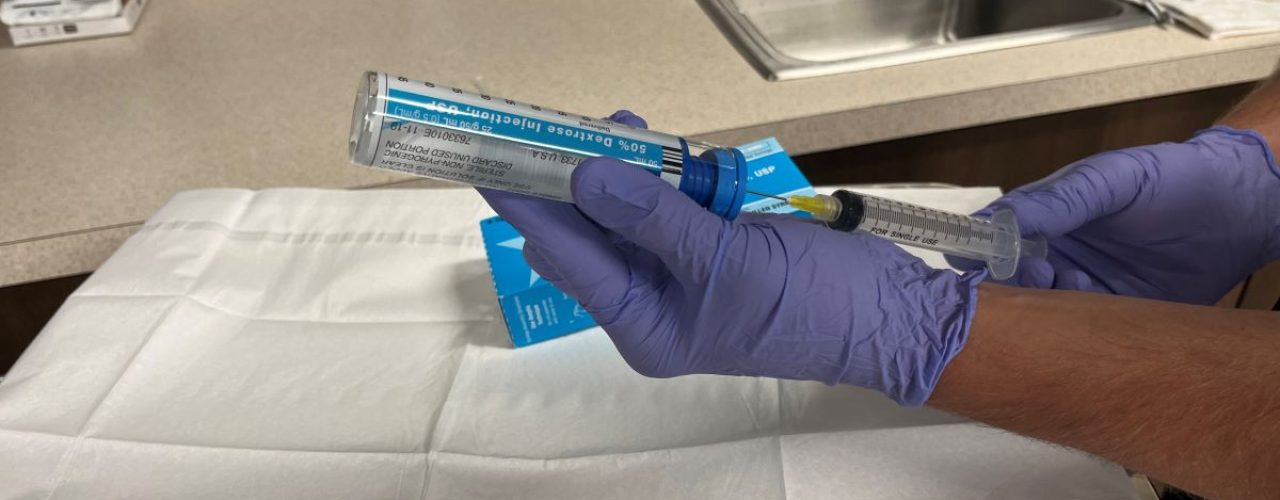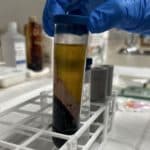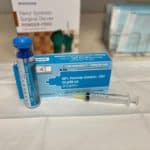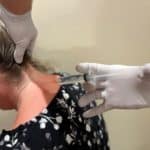There has been a lot of talk over the years that sugar is bad for you, but what if there was a proven way it could be good for you?
Today we are going to discuss this very thing. Prolotherapy is a treatment used to relieve pain in arthritic joints that is made up of sugar and water! It works to stimulate the body to heal and reduce pain in the trouble area. Sounds sweet, right?
This therapy was first discovered in the 1950s and since then has grown in popularity. Today, it is regularly used in primary care practice.
As sweet as all this sounds, as with any treatment, it comes with a low risk and some mild effects may occur for some people and it is important to take these into consideration.
How Prolotherapy Works
Prolotherapy is a widely accepted regenerative injection therapy that takes 15-30 minutes and is administered with an injection of a dextrose solution (a type of sugar) and sterile water in a syringe that is injected into someone’s arthritic joint like knee osteoarthritis, areas of ligament problems, tendon injuries or where there is chronic musculoskeletal conditions like back pain. It can also be applied to a torn ligament, soft tissues or tendon.
This mixture is thought to act as an irritant solution at the injection site of the wounded or damaged part of the body and results in triggering the body’s natural healing process, stimulating growth factors, collagen formation and blood flow to the area which in turn provides pain relief.
Prolotherapy also known as proliferation therapy has been researched extensively and substantial research has been done on its action inside the body.
Two doctors in particular from the Tabriz University of Medical Sciences reported in their study that it works by causing inflammation in local cells around the injection site which causes the body to release growth factors and collagen in an attempt to regenerate new cells and repair damage. In this way, it may provide long term pain relief.
There have been several studies conducted that show that receiving prolotherapy can be of benefit for chronic pain management.
In a more recent review on a prolotherapy randomized controlled trial on chronic musculoskeletal and back pain, published in 2020, 750 participants showed their follow up pain levels afterwards were significantly lower than those who had saline injections (Bae G et al, 2021).
Common Dangers and Side Effects of Prolotherapy
What are some prolotherapy dangers?
The good news about prolotherapy as a whole is that its level of dangers and side effects are extremely low. It is extremely rare to experience serious side effects however some of the short term side effects that a patient could experience are swelling and stiffness in the injection site for 1-2 days following treatment.
There is a very low risk of injury during the prolotherapy treatment, adverse reactions and potential infection.
According to a systematic review of studies conducted by practitioners, the most common side effects reported were temporary and had no long term effect on the patient, they included such things as: temporary post injection pain at the injection site, bruising, nerve pain and stiffness (Dagenais S et al, 2006).
The Orthopedic Review Medical journal, some of the long term side effects could be nerve irritation, muscle pain and numbness. However, it is important to remember that the likelihood of long term side effects such as these are very rare.
Another extremely rare side effect is an infection of the injection site after the treatment (Zhao AT et al, 2022).
A study published in 2020 on 59 patients with chronic plantar fasciitis revealed that neither the prolotherapy treatment group or the placebo effect group experienced any serious dangers or side effects (Asheghan M et al, 2020).
A Prolotherapy session may be done weekly, bi-weekly or monthly and patients usually need three to six injections to see the full effect of them working. Considering that each treatment has the low risk of one of these short and long term side effects, the chances that a patient will experience a number of these increases due to the fact that they are getting 3-9 injections over the course of their treatment.
The Importance of a Thorough Medical History and Evaluation
Although prolotherapy is a great alternative treatment, it is very important to tell your healthcare provider and prolotherapy practitioner your medical history because certain past medical histories rule out prolotherapy as a safe treatment. The prolotherapy practitioner will examine your overall physical health and ensure you understand the treatment and what to expect.
There are certain things you should avoid before your prolotherapy treatment. One of these is to avoid any anti-inflammatory medications or corticosteroids at least 5 days before the treatment and to avoid them for three weeks afterwards. This is because they may limit or stop the prolotherapy from working.
Who Should Avoid Prolotherapy?
There are a few groups of people that should avoid prolotherapy. Those that have an allergic reaction to dextrose are not candidates for this treatment. Those patients who are currently being treated with anticoagulants.
There are also health conditions that rule out prolotherapy. Some of these conditions include: cellulitis, septic arthritis, acute fractures and local abscesses. There are most likely more and it is best to consult with your medical practitioner to ask them if there is anything preventing you from trying it.
Choosing a Prolotherapy Practitioner
Are you thinking this might be for you?
The next step is to ensure you choose a reputable clinic with a qualified and experienced prolotherapy practitioner. This means they should be a certified prolotherapy practitioner. If you are unsure if a practitioner is certified there is a very simple way to discern this.
The medical body responsible for certifying doctors for prolotherapy is the American Association of Orthopedic Medicine. AAOM only certifies doctors that meet the experience and training required to practice prolotherapy.
It is important to ask if your practitioner is certified due to the specialized training that is required to administer the prolotherapy procedure. You will want to make sure the person who is using prolotherapy injection is experienced and qualified to avoid unnecessary dangers and injury to you.
Conclusion
So, will you be trying this simple and sweet yet effective therapy?
As we have seen:
Prolotherapy injections can be an effective treatment for chronic pain conditions such as musculoskeletal disorders and joint pain with very minor side effects, if any.
Most people can undergo prolotherapy with the exception of people undergoing anticoagulation therapy and allergies to anesthetic.
It’s important to consult with your medical practitioner first before seeking out prolotherapy.
Always make sure to ensure your prolotherapy practitioner is certified by AAOM. This is so you can be confident that they have had plenty of practice administering prolotherapy injections.
FAQ
Why is prolotherapy not FDA approved?
The FDA stands for Food and Drug Administration and is responsible for monitoring and approving food and drug substances for safety precautions. Prolotherapy is not a food or drug but is a product of a patient’s own blood and immune cells, therefore it is not eligible for FDA approval.
Is prolotherapy a permanent fix?
It is possible that dextrose prolotherapy can be a long term solution for some health complaints worsening pain and injuries as it is a regenerative medicine. This means it is able to trigger the body’s natural healing process in the affected joint or area, though results may vary. In comparison to other treatments such as platelet rich plasma, prolotherapy injections have been proven to last longer as pain relievers and the body responds well in its healing process after a session.
What is the success rate of dextrose prolotherapy?
According to studies and clinical trials, a success rate of up to 80-90% of patients is common. The medical community across the board report these percentages.
Who is not a candidate for prolotherapy?
Anyone that has an allergic reaction to anesthetic or anyone currently receiving anticoagulation therapy. Another group that should avoid prolotherapy are those who are suffering from a local abscess, cellulitis, septic arthritis or acute fractures.
References:
Here are some additional resources that explain dextrose prolotherapy dangers, risks and side effects that you can read at your convenience:
The American Academy / Association of Orthopedic Medicine
WebMD What to Know About Prolotherapy https://www.webmd.com/osteoarthritis/what-to-know-about-prolotherapy
Healthline – What are the Risks of Prolotherapy https://www.healthline.com/health/prolotherapy#risks




